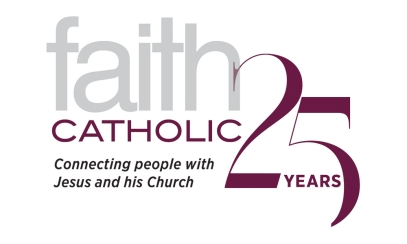“He has sent me to proclaim liberty to captives ... ”
Visiting those in prison
Visiting those in prison
The first time I celebrated Mass in a prison took place shortly after I was ordained. I was asked to celebrate Mass for the men who are incarcerated in a high-security prison located just outside Ann Arbor. The night was cold, snowy and dark. Upon arrival, I and the other members of our group went through the requisite security checks and safety instruction. Each of us was issued a panic button that was to be kept with us at all times. We were then escorted by a guard to the classroom where Mass would be celebrated. As we made our way into the facility, we went through successive doors, passing security monitoring stations and a host of guards. Having never before been inside a prison facility of that nature – one which houses a variety of violent offenders, most of whom will spend their lives there – I can honestly say that I had never before felt so fearful and yet so safe.
While others began the process of preparing things for Mass, I was led to an adjoining area where I was given the opportunity to share the sacrament of reconciliation with a number of inmates. After an hour or so, it was time for our celebration of the Eucharist to begin. Because of a misunderstanding on my part, I quickly discovered that I had prepared for the wrong set of Scripture readings for that Mass. I had prepared for the weekday’s readings. The readings that we used were instead those of the approaching Sunday. The Gospel passage for that night was not the one for which I had crafted a homily, but, by God’s providence, was instead the reading from Luke’s gospel in which Jesus, coming to the synagogue in Nazareth, reads from a scroll of the prophet, Isaiah: “The Spirit of the Lord is upon me, because he has anointed me to bring glad tidings to the poor. He has sent me to proclaim liberty to captives and recovery of sight to the blind, to let the oppressed go free, and to proclaim a year acceptable to the Lord.” (Luke 4:18-19)
How exactly does one proclaim liberty to captives when most of them will be held captive in prison for the rest of their lives? Even more haunting was how that night’s particular Gospel reading concluded, with Jesus saying quite clearly, “Today, this Scripture passage is fulfilled in your hearing.” I don’t recall much of my homily from that night, but I do remember that I did not stand there in silence. Because one is held captive in prison for life does not mean that there is no possibility for growth and change with God’s help. That evening, I discovered that God had been working mightily in the lives of many as they shared their stories of faith and hope, stories of conversion and contrition, stories of hunger for God’s life and love poured out in the Eucharist. On a fundamental level, their stories of faith were no different than those of any of the rest of us.
All of us are held captive by something – some by the walls of a prison, others by addiction. Some are held captive by the need for power, prestige or success, others by the need for approval. Some are held captive by systemic injustice or cruelty, others by chronic and debilitating illness. All of us experience the captivity of sin. Yet into our daily lives strides Jesus, with his Gospel of freedom from captivity and freedom from sin – won for us in the paschal mystery we celebrate in Easter. We are called to carry that Gospel message of freedom and that mystery of dying and rising into our daily living, even as the daily lives of others carry them to us. And so our journey in FAITH continues.



